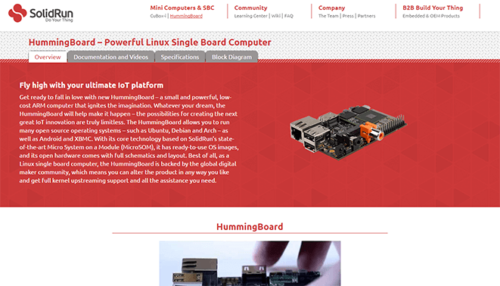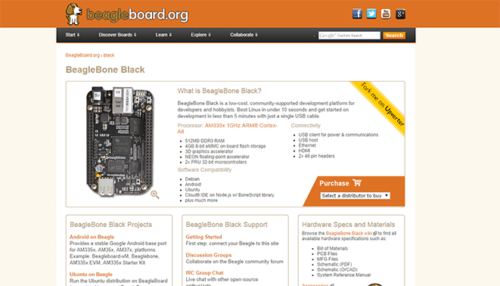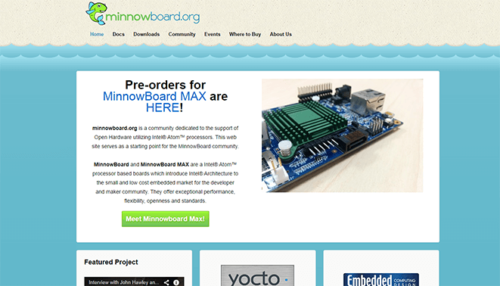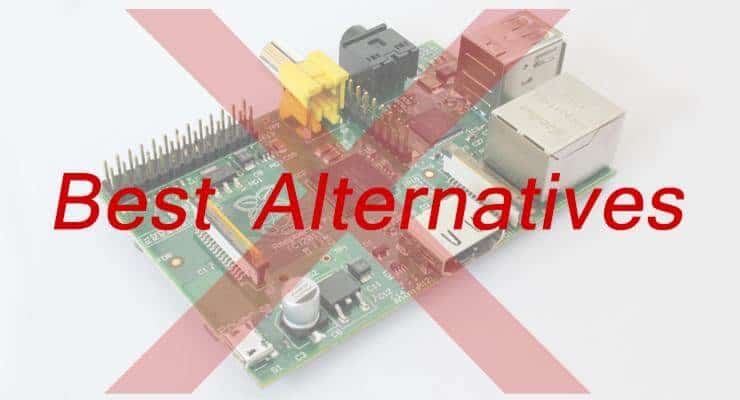The Raspberry Pi microcomputer has become a bit of a phenomenon among tech enthusiasts. It comes in at a very reasonable $35 - which makes it easily affordable for almost all DIYers. Spawned from its success however, are many other microcomputers which surpass it in quite a few regards. Even with our suggested overclocking guide for Raspberry Pi, you may find it lacking in the performance department. This article will talk about the best Raspberry Pi alternatives for those who need just a little more 'umph' in their microcomputer. [Read: 4 Great media center software for Raspberry Pi]
| Build a Low-Cost Raspberry Pi Media Center | Price |
|---|---|
| Raspberry Pi 4B Starter Kit with case, power adapter, and heat sinks | ~$82.00 |
| Sandisk Ultra 32GB Micro SDHC UHS-I Card 98 MB/s | ~$8.00 |
| SANOXY Wireless USB PC Remote Control Mouse for PC | ~$8.00 |
Table of Contents
3 Best Raspberry Pi Alternatives
The Raspberry Pi model used for comparisons is the standard 'Raspberry Pi B' board, but the Raspberry Pi B+ version basically has the same performance related components. For this year, we currently consider these the best Raspberry Pi Alternatives 2014...
1. HummingBoard - Powerful Linux Single Board Computer

When it comes to Raspberry Pi alternatives, the HummingBoard is currently one of the most similar - yet advanced - board available. It's also my top Raspberry Pi alternatives 2014 choice. The layout and configuration is very similar to that of the Raspberry Pi, making it easy to transition projects between the two. This is a great choice of board if you're looking for a lot of power. There are two versions of the HummingBoard available and both are reasonable alternatives to the Raspberry Pi...
| Board | Base Cost | Processor | Memory |
|---|---|---|---|
| HummingBoard-i1 | $45 | 1.0GHz Single-Core ARM v7 | 512 MB of RAM |
| HummingBoard-i2 | $75 | 1.0GHz Dual-Core ARM v7 | 1.0 GB of RAM |
| Raspberry Pi | $35 | 700MHz Single-Core ARM v6 | 512 MB of RAM |
With the increased power of the HummingBoard, it makes a suitable replacement as a Media Center. [Read: The Ultimate Guide to Raspberry Pi OpenELEC Media Center Setup]
2. BeagleBone Black

Another relative newcomer to the microcomputer revolution is the BeagleBone Black. Possibly the biggest advantage of the BeagleBone Black is that most users report it to be much easier to set up straight out of the box. Make Magazine even declared it better than Raspberry Pi in many areas for the price (you may want to read that for a full BeagleBone vs Raspberry Pi comparison). This board is great for those who want: a little bit more power, an easier set up, easier commercialization, or need to interface with many external sensors. I consider this to be one of the best alternatives to Raspberry Pi simply because of the similar - yet improved - specs. [Read: 5 Best Raspberry Pi Wifi adapters for you media center]
| Board | Base Cost | Processor | Memory | Storage |
|---|---|---|---|---|
| BeagleBone Black | $45 | AM335X 1GHz ARM Cortex-A8 | 512 MB of DDR3 RAM | 2GB on-board EMMC, microSD |
| Raspberry Pi | $35 | 700MHz Single-Core ARM v6 | 512 MB of SDRAM | SD |
3. MinnowBoard Max

The MinnowBoard Max is Intel's attempt to infiltrate the DIY open-source world. While the Raspberry Pi is used often for educational and learning purposes, the MinnowBoard Max is aimed toward serious hobbyists and professionals. With its significantly increased specs comes a significantly increased price. This is the board, as far as Raspberry Pi alternatives go, to choose if you need a lot of power for your project. Note that the MinnowBoard Max also includes Intel HD Graphics making it better than Raspberry Pi for rendering. There are two versions of this board as well...
| Board | Base Cost | Processor | Memory |
|---|---|---|---|
| MinnowBoard Max v1 | $99 | 1.4GHz Single-Core 64-bit Intel Atom | 1.0 GB of DDR3 RAM |
| MinnowBoard Max v2 | $139 | 1.33GHz Dual-Core 64-bit Intel Atom | 2.0 GB of DDR3 RAM |
| Raspberry Pi | $35 | 700MHz Single-Core ARM v6 | 512 MB of SDRAM |
Choosing Between The Raspberry Pi Alternatives
If you're still not sure which of these boards would best suit your project(s), you may need to nail down the specifics first. Do you need a ton of power? The MinnowBoard is a great option. Is there a multitude of sensor connections that need to be made? The BeagleBone Black may be the ticket. Each of these boards have their own support communities as well - so if you're unsure of whether the board can do what you need it to - check in with those who actually use it on a consistent basis! You may find that you actually prefer the original - there is a reason that it's considered the king of microcomputers.


![8 Amazing Raspberry Pi Ideas [2022]: Beginners and Enthusiasts Raspberry Pi ideas](https://www.smarthomebeginner.com/images/2021/09/raspberry-pi-4-dev-board.jpg)


![10 Best Plex Client Devices [2022] - STUTTER-free Streaming Best Plex Client Devices](https://www.smarthomebeginner.com/images/2022/02/best-nas-for-plex-server-featured-images-from-pexels-photography-maghradze-ph-3764958-e1648542743772.jpg)
![10 Best Jellyfin Client Devices [2022] - 4k, Hardware Transcoding, etc. Jellyfin Roku App](https://www.smarthomebeginner.com/images/2021/02/jellyfin-roku-client-app-ft.jpg)
